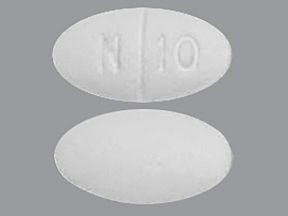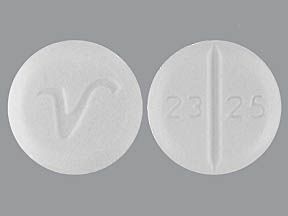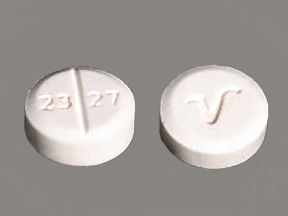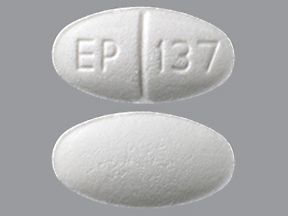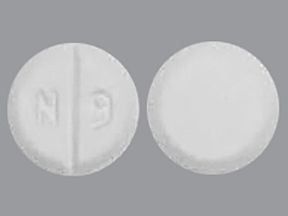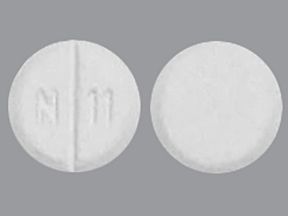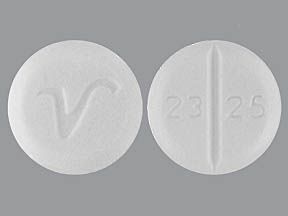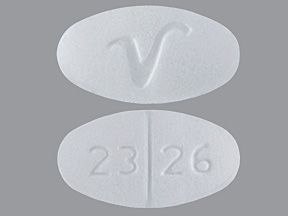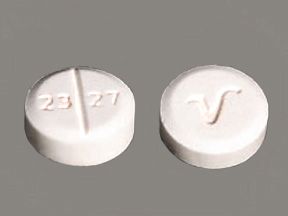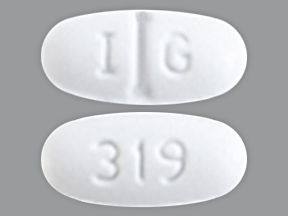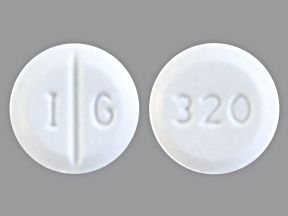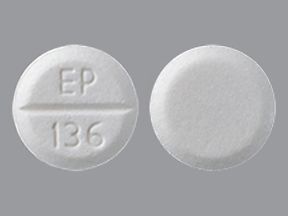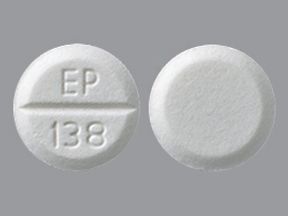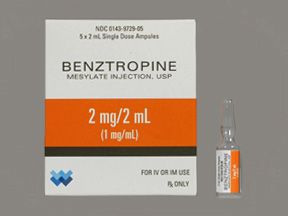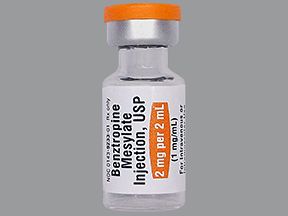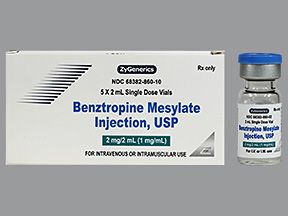Benztropine is a generic prescription drug that’s used to help manage all forms of parkinsonism. Benztropine comes as an injectable solution and an oral tablet. It’s based on the brand-name drug Cogentin.
Benztropine is used in adults and certain children ages 3 years and older to manage parkinsonism. This is a broad term used to describe a group of diseases that may affect your nervous system, including Parkinson’s disease.
Benztropine may also be used to treat some drug-induced movement disorders. These disorders are also known as extrapyramidal disorders or drug-induced parkinsonism.
To learn more about benztropine’s uses, see the “What is benztropine used for?” section.
Benztropine brand-name versions
Benztropine is a generic drug, which means it’s an exact copy of the active drug in a brand-name medication. The brand-name medication that benztropine is based on is called Cogentin, which has been discontinued.
Generic drugs are thought to be as safe and effective as the brand-name drug they’re based on. In general, generics usually cost less than brand-name drugs do.
Benztropine is used to treat symptoms of parkinsonism, a syndrome that includes Parkinson’s disease. These symptoms include tremor, slow movement, stiffness, or balance problems.
Benztropine works quickly. It may improve your symptoms within a few minutes of the injection. It’s often used when parkinsonism symptoms are severe or considered an emergency.
Benztropine is also used to treat some drug-induced movement disorders. These are side effects linked to the use of neuroleptic (antipsychotic) drugs. Symptoms of these disorders include tremor, continuous spasms, and muscle contractions or loss of movement.
Note: Benztropine should not be used to treat a disorder called tardive dyskinesia. This involves involuntary movement of the tongue, jaw, face, limbs, or torso.
How it works
Benztropine belongs to a class of drugs called anticholinergics. A class of drugs is a group of medications that work in a similar way. These drugs are often used to treat similar conditions.
Benztropine works by blocking chemicals in your body that cause the symptoms of parkinsonism or drug-induced movement disorders. This results in decreased tremors, muscle spasms, and stiffness, and better muscle control.
Like most drugs, benztropine may cause side effects. The following lists contain some of the more common side effects benztropine may cause, but they don’t include all possible side effects.
Keep in mind that side effects of a drug can depend on:
- your age
- other health conditions you have
- other medications you take
Your doctor or pharmacist can tell you more about the potential side effects of benztropine. They can also suggest ways to help reduce side effects.
More common side effects
Some of the more common side effects that can occur with use of benztropine include:
- rapid heart rate
- nausea and vomiting
- constipation
- dry mouth
- difficulty urinating
- blurred vision
If these effects are mild, they may go away within a few days or a couple of weeks. If they’re more severe or don’t go away, talk with your doctor or pharmacist.
Serious side effects
Call your doctor right away if you have serious side effects. Call 911 if your symptoms feel life threatening or if you think you’re having a medical emergency.
Serious side effects that have been reported include:
- severe confusion or nervousness
- dizziness
- severe muscle weakness
- inability to sweat
- severe nausea and vomiting
- numbness in the fingers
- changes in thinking or mental health
- intestinal paralysis (also known as paralytic ileus)
- hyperthermia and heatstroke
Allergic reaction
For some people, benztropine can cause an allergic reaction. But this side effect wasn’t reported in studies of benztropine injections or tablets.
In general, symptoms of an allergic reaction can be mild or serious.
What might help
If you have mild symptoms of an allergic reaction, such as a mild rash, call your doctor right away. They may suggest a treatment to manage your symptoms and can determine whether you should keep using benztropine.
If you have symptoms of a severe allergic reaction, such as swelling or difficulty breathing, call 911 or your local emergency number right away. These symptoms could be life threatening and require immediate medical care.
If your doctor confirms you’ve had a serious allergic reaction to benztropine, they may have you switch to a different treatment.
Your doctor will recommend the dosage of benztropine that’s right for you. Here are some commonly used dosages, but always take the dosage your doctor prescribes.
Form and strength
Benztropine tablets are available in the following strengths:
- 0.5 milligrams (mg)
- 1 mg
- 2 mg
The benztropine injectable solution is available in one strength: 1 mg of benztropine per 1 milliliter (mL) of solution. It comes in a single-dose vial containing 2 mL of solution.
If you can swallow pills, your doctor will likely prescribe the tablet form of benztropine.
Recommended dosages
Your doctor will recommend the dosage of benztropine that’s right for you. Here are commonly used dosages, but the dosage you receive will be determined by your doctor.
Dosage for parkinsonism
The typical recommended dosage of benztropine for parkinsonism is 1 to 2 mg per day. However, your doctor may prescribe a dose as low as 0.5 mg or as high as 6 mg. Your dose will be based on multiple factors, including your body weight and how your body responds to the drug.
You will typically take Benztropine once per day at bedtime. In some cases, your doctor may recommend dividing benztropine into smaller doses throughout the day. When prescribed in this way, benztropine may be taken up to four times per day.
If you are able to swallow pills, you’ll likely take the benztropine tablets instead of injections.
Dosage for drug-induced movement disorders
The typical recommended dosage of benztropine for treating drug-induced extrapyramidal disorders is 1 to 4 mg, taken once or twice per day. Your doctor will determine your dosage based on your specific condition and how well your body responds to the drug.
You’ll typically only take benztropine for 1 or 2 weeks. However, if your symptoms last longer, your doctor may continue to prescribe benztropine.
How to use
Your doctor will explain how you should use benztropine. They’ll also explain how much to take and how often. Be sure to follow your doctor’s instructions.
Benztropine comes as an injection and a tablet that you swallow.
If you’re prescribed benztropine injections, you may receive your doses in a doctor’s office or clinic. Your doctor may also show you or a caregiver how to give these injections at home.
Questions about using benztropine
Here are some common questions about using benztropine.
- Can benztropine tablets be chewed, crushed, or split? It’s unclear whether benztropine tablets can be chewed, crushed, or split. If you have trouble doing so, you can get tips on how to swallow pills, or ask your doctor or pharmacist for advice.
- Is there a best time of day to take benztropine? Benztropine is often taken at bedtime. However, it may also be taken in divided doses throughout the day, depending on your specific needs. Your doctor can provide more details on the best time for you to take benztropine.
- What happens if I miss doses or don’t receive the drug on schedule? Your medication may not work as well or may stop working completely. For this drug to work well, a certain amount needs to be in your body at all times.
- Will I need to use benztropine long term? Whether you use benztropine long term will depend on the condition you’re using it to treat. Benztropine is usually taken long-term for parkinsonism. But it’s typically only taken for 1 to 2 weeks when prescribed for drug-induced movement disorders. If you have questions about how long you’ll need to take benztropine for your condition, talk with your doctor.
- How long does benztropine take to work? Benztropine begins to work after you take your first dose. How quickly you feel the effects will depend on several factors, including your dosage. For example, it may take longer to notice benztropine working if you take multiple divided doses instead of one full dose.
Overdose
Do not use more benztropine than your doctor prescribes, as this can lead to harmful effects.
Symptoms of overdose
Symptoms caused by an overdose can include:
- central nervous system depression
- nervousness or restlessness
- hallucinations
- rapid heart rate
What to do in case you take too much benztropine
Call your doctor if you think you’ve taken too much benztropine. You can also call 800-222-1222 to reach America’s Poison Centers or use its online resource. But if you have severe symptoms, immediately call 911 or your local emergency number. Or go to the nearest emergency room.
Important information you should consider before using benztropine is as follows.
Interactions
Taking a medication with certain vaccines, foods, and other things can affect how the medication works. These effects are called interactions.
Benztropine can interact with other medications, herbs, or vitamins you might be taking.
Your healthcare professional will look out for interactions with your current medications. Always be sure to tell your doctor about all medications, herbs, or vitamins you’re taking.
If you’re taking other drugs to treat parkinsonism, do not stop taking them suddenly after you start taking benztropine. If they need to be stopped, your doctor should slowly reduce their dosage over time.
If you’re taking an antipsychotic drug or tricyclic antidepressant, you may have a higher risk of certain side effects with benztropine. These side effects include hyperthermia, heat stroke, and intestinal paralysis. Before you start treatment with benztropine, let your doctor know about any medications you take.
Benztropine and alcohol
Alcohol consumption may increase your risk of certain side effects of benztropine, including drowsiness.
Pregnancy and breastfeeding
It’s not known for certain whether benztropine is safe to take during pregnancy. It’s also not clear whether benztropine passes into breast milk or how it may affect a child who is breastfed.
If you’re pregnant, breastfeeding, or planning for either, talk with your doctor. They’ll help determine the safest treatment options for you and your child.
Other warnings
Benztropine can sometimes cause harmful effects in people who have certain conditions. This is known as a drug-condition interaction. Other factors may also affect whether benztropine is a good treatment option for you.
Talk with your doctor about your health history before you take benztropine. Be sure to tell them if any of the following factors apply to you:
- glaucoma, particularly closed-angle glaucoma
- rapid heart rate
- enlarged prostate
- certain mental health disorders, such as depression
- difficulty sweating
Whether you have health insurance or not, cost may be a factor when you’re considering benztropine. What you’ll pay for benztropine may depend on several things, such as your treatment plan and the pharmacy you use.
Here are a few things to consider regarding cost:
- Cost information and savings coupons: You can visit Optum Perks to get price estimates of what you’d pay for benztropine when using coupons from the site. See the following coupon options. (Note: Optum Perks coupons cannot be used with any insurance copays or benefits.)
Learn more about saving on your prescriptions.
Disclaimer: Healthline has made every effort to make certain that all information is factually correct, comprehensive, and up-to-date. However, this article should not be used as a substitute for the knowledge and expertise of a licensed healthcare professional. You should always consult your doctor or other healthcare professional before taking any medication. The drug information contained herein is subject to change and is not intended to cover all possible uses, directions, precautions, warnings, drug interactions, allergic reactions, or adverse effects. The absence of warnings or other information for a given drug does not indicate that the drug or drug combination is safe, effective, or appropriate for all patients or all specific uses.








